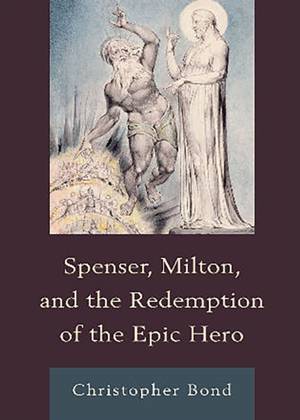
- Afhalen na 1 uur in een winkel met voorraad
- Gratis thuislevering in België vanaf € 30
- Ruim aanbod met 7 miljoen producten
- Afhalen na 1 uur in een winkel met voorraad
- Gratis thuislevering in België vanaf € 30
- Ruim aanbod met 7 miljoen producten
Zoeken
€ 82,45
+ 164 punten
Omschrijving
This book studies the interplay of theology and poetics in the three great epics of early-modern England: the Faerie Queene, Paradise Lost, and Paradise Regained. Bond examines the relationship between the poems' primary heroes, Arthur and the Son, who are godlike, virtuous, and powerful, and the secondary heroes, Redcrosse and Adam, who are human, fallible, and weak. He looks back at the development of this pattern of dual heroism in classical, Medieval, and Italian Renaissance literature, investigates the ways in which Spenser and Milton adapted the model, and demonstrates how the Jesus of Paradise Regained can be seen as the culmination of this tradition. Challenging the opposition between "Calvinist," "allegorical" Spenser and "Arminian," "dramatic" Milton, this book offers a new account of their doctrinal and literary affinities within the European epic tradition. Arguing that Spenser influenced Milton in fundamental ways, Bond establishes a firmer structural and thematic link between the two authors, and shows how they transformed a strongly antifeminist genre by the addition of a crucial, although at times ambivalent, heroine. He also proposes solutions to some of the most difficult and controversial theological cruxes posed by these poems, in particular Spenser's attitude to free will and Milton's to the Trinity. By providing a deeper understanding of the religious agendas of these epics, this book encourages a rapprochement between scholarly approaches that are too narrowly concerned with either theology or poetics.
Specificaties
Betrokkenen
- Auteur(s):
- Uitgeverij:
Inhoud
- Aantal bladzijden:
- 260
- Taal:
- Engels
Eigenschappen
- Productcode (EAN):
- 9781644531303
- Verschijningsdatum:
- 29/04/2011
- Uitvoering:
- Paperback
- Formaat:
- Trade paperback (VS)
- Afmetingen:
- 152 mm x 229 mm
- Gewicht:
- 390 g

Alleen bij Standaard Boekhandel
+ 164 punten op je klantenkaart van Standaard Boekhandel
Beoordelingen
We publiceren alleen reviews die voldoen aan de voorwaarden voor reviews. Bekijk onze voorwaarden voor reviews.








